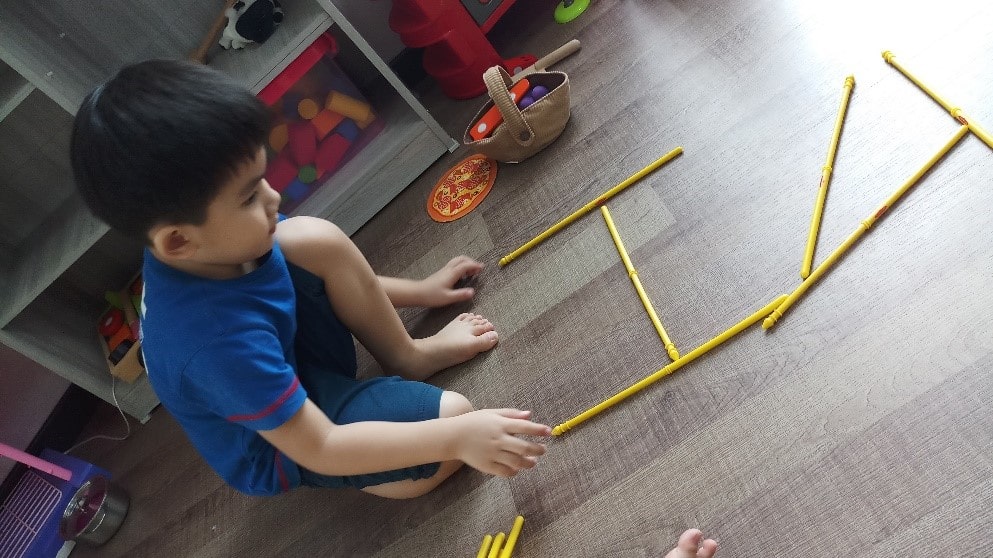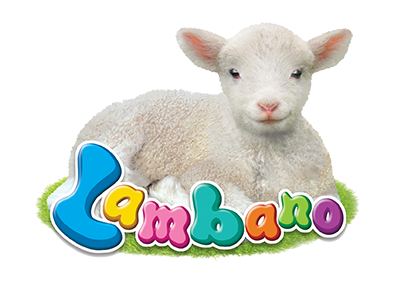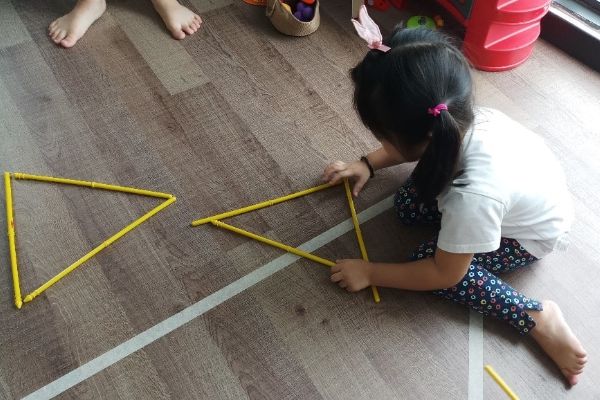Play and learn in the Play-school Environment
Being in the education service, I have encountered many parents who are “shopping” for the pre-schools for their little ones. When asked what they desire for their child, most of the responses are that they be able to read, write and know their numbers. We live in a culture that wants our children to be it, academic learners, more often, neglecting other equally important learning such as motor skills or social skills.
In line with the education policies for pre-schools, our schools provide different approaches in teaching and learning. Our schools advertise methods they use, where the children learn in a fun-filled environment, while they play and they learn and learn with fun hands-on activities.
We need to understand every child goes through stages in their learning process. As he learns, he will continue to build on it naturally, according to his ability and timing. Children need and desire this fun-filled enjoyable method of learning.
Playing is important.
It has been quoted many times, “A child’s play is his work.” Let’s take a moment to look back at our childhood memories. How did we fill our time? Did our neighborhood friends pop over to play with our simple toys? Did we improvise and make our own toys? Did we just mess around inventing new ways to play our old tired toys, mum’s pots, and pans, or an old tire in the backyard? As I recall during my childhood, today we played mom and dad, tomorrow we will be teachers and students, yet another day we are doctor, nurse, and patient. Unknown to us, we were in fact developing and preparing ourselves for adulthood, in a natural and wonderful way.
Listen and watch closely, as your child plays alone with his toys and you will hear him inventing a role, an imitation of the real-world. Play and social development, work hand in hand, as each becomes a vehicle that supports the other.
School environment and social skills
A child develops through this interactive play. As a child is placed in an environment with others, like his play-school or kindergarten class, his social awareness grows and expands as he begins to understand that there are others, like him, in this game-play.
One consequence of play is social development. Co-operation, respect, and empathy are being taught, not by his teacher but through his play and peers.
In the play and learn or the hands-on environment in schools, toy objects are symbolic to the real objects. Using them enables a child to learn about our real world. These become the building blocks that are put into place, which enables the children to learn about the real world, thus also learning how to interact with their environment.
Making a cargo on the floor, opposed to going down a ramp, are ways to see how material objects work and how actions can change their outcome. A child has fallen and hurt her knee, can encourage the children to show empathy or perhaps place a plaster on the cut, this helps learn how to work out the relation between people and how they behave.
Stories, role-play, music and movement, quiet or group play give a child a sense of esteem and pride in his achievements. When he is motivated, with the positive interaction from peers and teaches, this stimulates him to keep doing more and more.
The learning never stops.
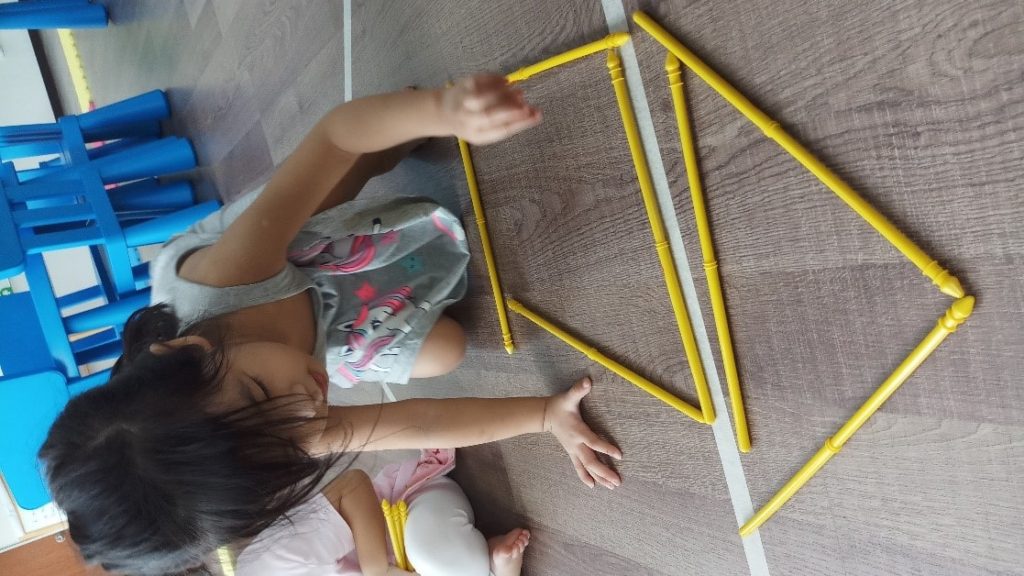
Learning shapes.
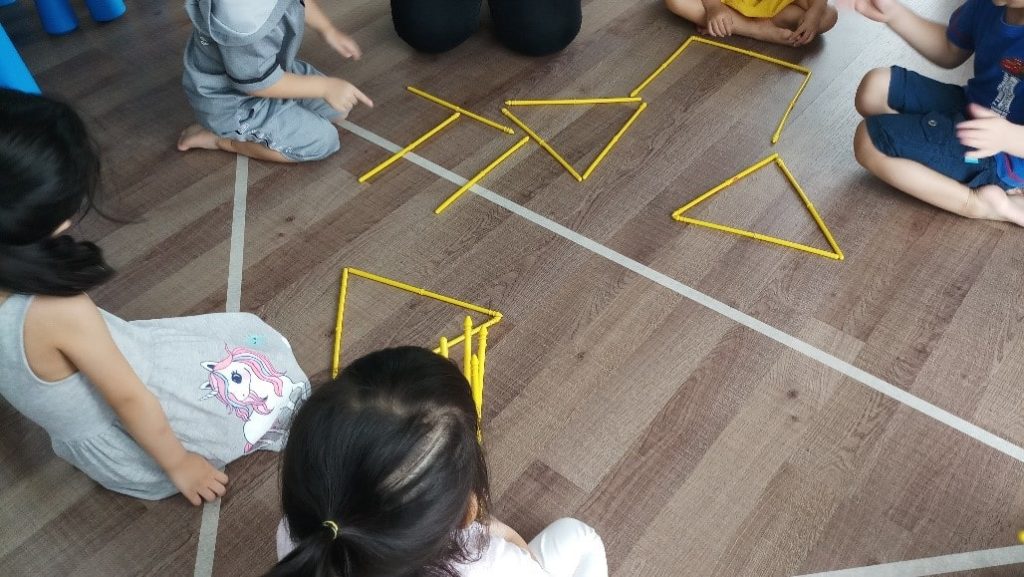
Free play using the sticks to create anything.
